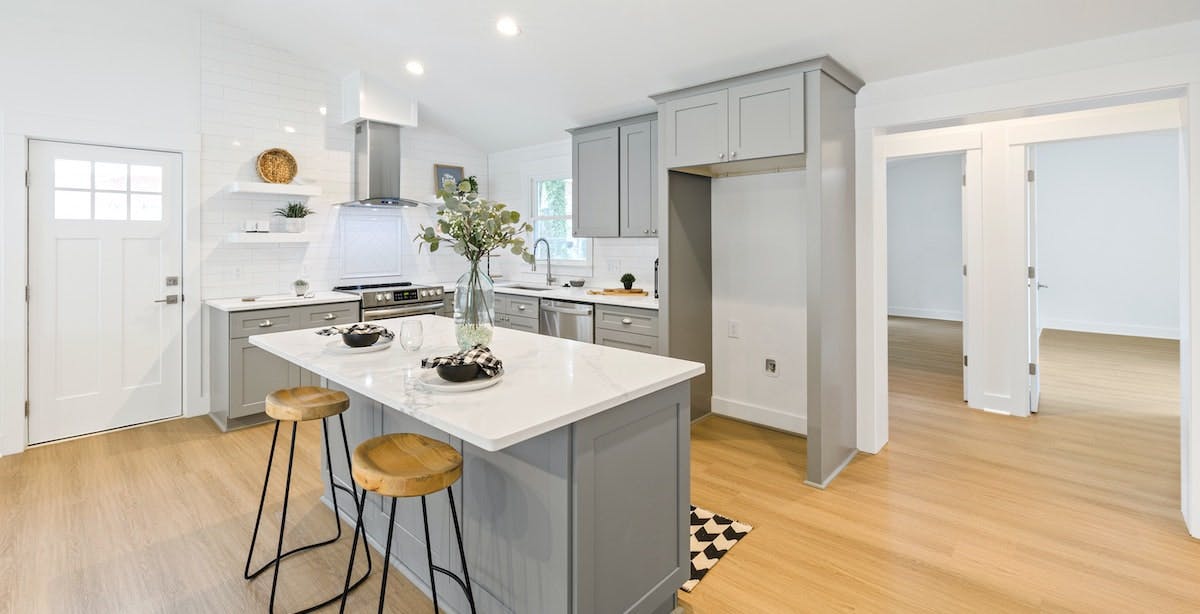Real Estate Investing
Buying an investment property? Here’s what to look for
Last Updated Jun 30, 2022


Looking for an investment property is fundamentally different from seeking out a home you’ll live in yourself.
When you’re looking for your own home, your personal preferences come first. But a good investment property should be as appealing as possible to its future residents.
Risk is a natural part of making any type of investment. You can’t totally eliminate that risk, but you can greatly reduce it by considering your options carefully.
Shopping for an investment property is all about understanding the area, the local market, and the home itself. Here’s what you need to know to get started.
Location, location, location
Remember, a home itself can always be updated. But you can never change the location!
Before you start considering actual investment properties, take your time to figure out which city, area, or neighborhood is right for you. That means analyzing both the market realities of the area, how livable it will be for future residents.
Look for a strong market
Start by assessing how strong the rental and retail market is in your desired location. What are homes selling for? Is there a high vacancy rate?
You’ll also want to understand property tax in the area. Different cities, regions, and municipalities all charge different property tax rates.
Get to know the neighborhood
Next, it’s time to learn about what makes the area a great place to live.
What kind of amenities, like parks, schools, and gyms, are nearby the homes you’re looking at? Is there a healthy job market in the area? And don’t forget about the crime rate. Is this a neighborhood where residents will feel safe?
Some of these criteria will depend on the type of home, and what kind of residents you’re looking for. For example, schools are much more important near a single-family home than a one-bedroom condo.
Doing this preliminary research is a great way to get started. But once you’re ready to move forward, you’ll want to connect with a real estate agent who knows the area well.
What type of home should you look for?
A condominium or a single-family home is usually the best way to get started with real estate investment.
Commercial and multi-family buildings can be very lucrative investment properties. But you shouldn’t try to jump in with a property like that your first time. These buildings are incredibly expensive, and managing them is much more complex.
Whether a condo or single family home is better for you depends on your budget and financial needs.
Condominiums
Because they are smaller, condos will typically be much cheaper than a detached home. There’s also less labor involved in upkeep and maintenance, because external work on the building is handled by the strata association, paid for by owners’ fees.
However, you can generally expect faster resident turnover at these homes. Often, though not always, these renters aren’t yet ready to settle down long-term.
Single family homes
Single family homes are much more expensive, but can also command higher prices in rent. Plus, residents are more likely to be looking for a stable, long-term home to raise their families in.
If you can afford the higher purchase price and can budget for more maintenance and repairs, single family homes can be an ideal investment.
Will the home appreciate in value?
Ideally, an investment property will continue to rise in value long after you purchase it.
There’s no way to guarantee that a home will appreciate. But there are a few attributes you can look for, to assess a home’s appreciation potential.
First of all, some housing markets are just stronger than others, and consistently appreciate in value over time. In other markets, homes may fluctuate in value, stay static, or even decline. A common example would be that housing markets in urban centers are usually stronger than those in rural, sparsely populated regions.
Some types of property, such as waterfront property, can be more likely to appreciate, too.
Also, if your home needs some affordable, minor improvements, you may be able to boost its value by updating. But beware fixer-uppers and home-flipping! These risky ventures are often much more costly than expected, and don’t deliver the same profits as they do on TV.
What’s your budget?
The most important piece of budget advice is to never buy a home you can’t afford, no matter how much you think it may appreciate in value.
There is more risk involved in real estate investment than when buying a principal residence. You need to make sure that you have the financial cushion to weather unexpected costs like a vacancy, or eviction, or decline in value.
A good rule of thumb is to pay no more than 12x annual rent for an investment property. You should also plan to pay more for the down payment. Expect to put 20% down, if not more, on a rental property, compared to as little as 5% for a primary residence.
Setting rent
Choosing the right rent means you’ll find residents more quickly — and not just any residents, but people who will love your home for years to come.
Don’t just choose a number that works for you out of thin air. Research average rents in your area, then tweak them based on factors like your home’s size, age, and nearby amenities.
Rent needs to cover your annual mortgage, property value, and insurance costs, plus a generous margin for maintenance and repairs. Having the ability to handle some repairs yourself, or building relationships with reliable, well-priced professionals, is an important way to keep costs down.
A good rule of thumb is to charge 1% of the purchase price in monthly rent. While you may not be able to follow this guideline precisely, it is a good way to ensure that the rental property is profitable.
Do you need a rental partner?
If you want to provide your residents with a welcoming home they can love for years, you need to stay on top of maintenance and be responsive to their needs. To deliver the level of service your residents deserve, approach renting out your home as a part-time job, not a passive income stream.
If you don’t have time to devote hours every month to managing your investment property, consider working with a rental partner like Belong.
We are a modern, people-focused alternative to the inefficient, low-tech property management companies of yesterday. Not only do we help owners with the time commitment and costs of maintenance, but we help you set the best possible rent, and find residents who love your home as if it was their own.
About The Author
Afton Brazzoni
Afton Brazzoni has been a storyteller since childhood, when she wrote her first "book" about horses in a hardcover notebook—in pencil. Now with nearly 14 years of experience as a professional writer, her work has been featured in numerous publications across North America and Europe. As a former reporter, Afton takes a journalistic approach to creating original, expert-level content.




